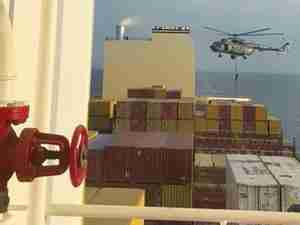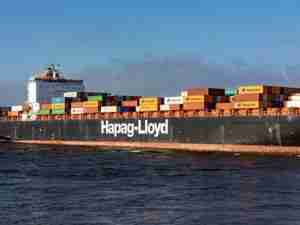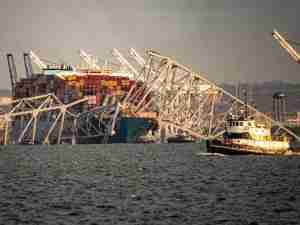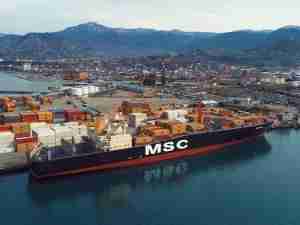The Sept. 22 letter comes in response to a request by a group of agricultural organizations who want to bypass American shipping companies and American workers and, instead, use foreign shipping companies and foreign workers for the transportation of grain and other products in the US. Under the current law known as the Jones Act, all cargo transported between two points in the domestic US must move on American vessels. Agricultural interests have argued that the devastation in the Gulf merits a waiver of the Jones Act.
"There is existing capacity on coastwise-qualified US vessels, on both the rivers and the coasts, to handle the demand for the transportation of agricultural products," wrote Philip Grill, Chairman of the Maritime Cabotage Task Force (MCTF), in a September 22 letter to President Bush. "The agricultural interests' request is not based on any legitimate justification."
Grill said there are "thousands of barges on the Mississippi River system now poised to move America's grain harvest to market" and "oceangoing vessels that are capable of providing service to agricultural interests, including transporting Midwest feed supplies to markets in the US mid-Atlantic and Southeast regions."
On September 20, a group of 21 agricultural interests asked the President to waive the Jones Act for agricultural products to "ease the burden of the overtaxed US transportation system" in light of the catastrophic effects of Hurricane Katrina. Grill emphasized the surplus of grain in the Midwest that was cited by agricultural interests is not the result of a lack of qualified American vessels to transport it. "As the spokesperson for the American Farm Bureau Federation admits, much of the surplus problem is due to last year's crop still being in storage in the region," he said. "That situation is driven by the economic state of the world export market for US grain, not the inability to move grain within the US."
Grill also rejected the allegation that Hurricane Katrina has left the inland waterways unnavigable. The system which handles 75% of US grain exports has not "been largely washed away" as the Farm Bureau maintains, Grill said. "In fact, today near normal traffic levels are being reported on the lower Mississippi River for both deep draft ships and shallow draft barges, and the storm had little impact on the upper reaches of the Mississippi, Missouri, or Ohio River systems."
Grill further underlined the fact that under US law, there is only one rationale that permits a waiver of the Jones Act, on a case-by-case basis -- specified national defense needs, which, in the case of petroleum products, would include interruptions to the supply of fuel. Such a waiver would require a determination by the US government that no qualified Jones Act vessels were available. "Such a rationale is notable by its absence in the present case," Grill stressed. "Nor could such a finding of non-availability of US-flag vessels operated by tax-paying American companies and American citizen crews be made in light of the fact that sufficient capacity does indeed exist today to meet the needs of America's farmers."









